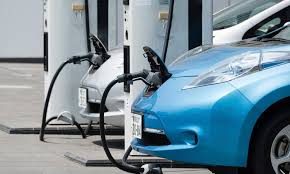According to new guidelines for battery procurement, the US Treasury changed its list of electric vehicles qualifying for a $7,500 EV tax credit, and BMW, Nissan, Rivian, Hyundai, Volvo, and Volkswagen are no longer included.
The new specifications will take effect on Tuesday and reduce Tesla Model 3 credit to $3,750. The full $7,500 credit will still be available for other Tesla models. The Chevrolet Bolt and Bolt EUV, along with all other EVs made by General Motors, will likewise be eligible for the full credit.
The Inflation Reduction Act, passed by Congress in August, included a provision requiring EV tax credits. To be eligible for the $3,750 IRA, 50% of the value of the battery’s component parts must be made or built in North America. 40% of the value of the key materials must come from the US or another nation with whom we have a free trade agreement in order to be eligible for the remaining $3,750.
The regulations are intended to increase American capacity to manage the supply chain while assisting the United States in reducing its dependency on China for EV battery supplies. By 2030, President Joe Biden wants to see 50% of new cars sold in the US be electric or hybrid.
Following the Environmental Protection Agency’s proposal for strict new pollution regulations that would require 60% of new car sales to be electric by 2030, the Treasury decided to implement its guidance this week.
The BMW 330e, BMW X5 xDrive45e, Genesis Electrified GV70, Nissan Leaf, Rivian R1S and R1T, and Volkswagen ID.4 are the EVs that will lose credits on Tuesday, while VW believes the ID.4 will qualify and is simply awaiting documentation from a supplier to make that determination. Credits will also be lost for plug-in hybrid automobiles like the Volvo S60 and Audi Q5 TFSI e Quattro.
Furthermore, Ford and Stellantis vehicles that had previously been eligible for the entire tax credit will only be able to access half of it.
The majority of automakers have plans to construct battery plants in the United States, with the exception of Volvo, a Swedish business that is majority owned by China’s Geely.
For instance, factories are being built by Rivian and Hyundai in Georgia. Volkswagen has picked Ontario, Canada as the location for its North American battery factory while constructing the ID.4 in Chattanooga, Tennessee. BMW is spending $1.7 billion in South Carolina to produce cars and batteries.
For EVs that do not qualify for consumer tax credits, there is one exception. In December, the Treasury stated that non-eligible EVs might be qualified for a business lease credit, also worth $7,500.

















